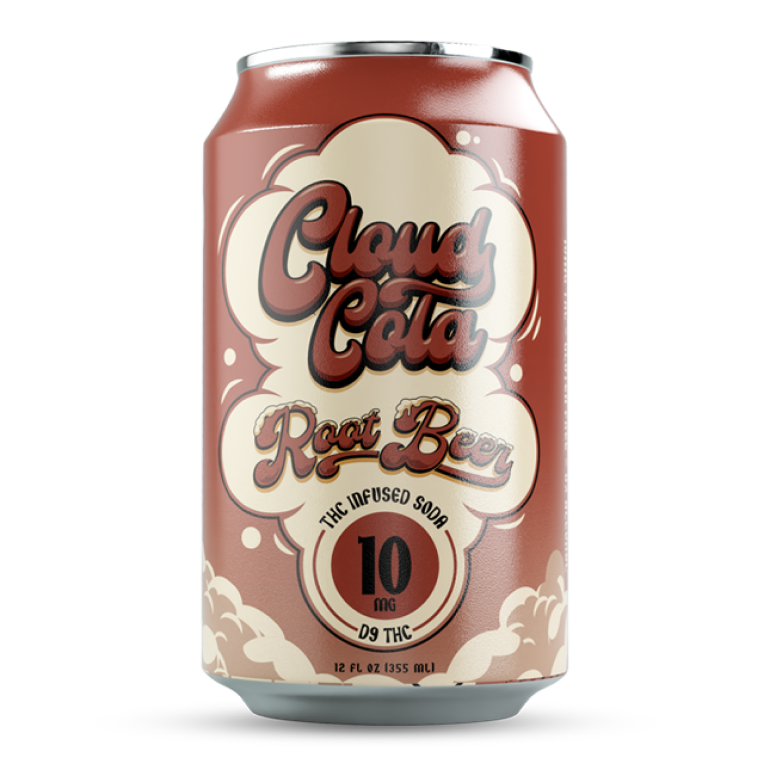Factors Affecting THC Metabolism
The way your body processes tetrahydrocannabinol (THC), the psychoactive component in cannabis, can vary significantly from person to person. Factors such as age, metabolism, body mass index, and even genetics can influence how quickly or slowly THC is broken down and eliminated. Understanding these factors is crucial for anyone looking to maximize the duration of THC’s effects, particularly when it comes to consuming THC in beverages.
Body Weight
Body weight plays a crucial role in THC metabolism. Individuals with higher body mass generally metabolize THC more slowly than those with lower body mass. This means that a larger person may experience the effects of THC for a longer duration compared to someone who weighs less, even if they consume the same amount.
Liver Function
The way your body processes tetrahydrocannabinol (THC), the psychoactive component in cannabis, can vary significantly from person to person. Factors such as age, metabolism, body mass index, and even genetics can influence how quickly or slowly THC is broken down and eliminated. Understanding these factors is crucial for anyone looking to maximize the duration of THC’s effects, particularly when it comes to consuming THC in beverages.
Body weight plays a crucial role in THC metabolism. Individuals with higher body mass generally metabolize THC more slowly than those with lower body mass. This means that a larger person may experience the effects of THC for a longer duration compared to someone who weighs less, even if they consume the same amount.
Another key factor is liver function. The liver plays a central role in breaking down and metabolizing THC. Individuals with compromised liver function may metabolize THC more slowly, leading to prolonged effects.
- Age can also influence THC metabolism. Generally, younger individuals tend to metabolize THC faster than older individuals.
- Certain medications can interact with the enzymes responsible for breaking down THC, potentially altering its metabolism and duration of effects.
Metabolism
The way your body processes tetrahydrocannabinol (THC), the psychoactive component in cannabis, can vary significantly from person to person. Factors such as age, metabolism, body mass index, and even genetics can influence how quickly or slowly THC is broken down and eliminated. Understanding these factors is crucial for anyone looking to maximize the duration of THC’s effects, particularly when it comes to consuming THC in beverages.
Body weight plays a crucial role in THC metabolism. Individuals with higher body mass generally metabolize THC more slowly than those with lower body mass. This means that a larger person may experience the effects of THC for a longer duration compared to someone who weighs less, even if they consume the same amount.
Another key factor is liver function. The liver plays a central role in breaking down and metabolizing THC. Individuals with compromised liver function may metabolize THC more slowly, leading to prolonged effects.
- Age can also influence THC metabolism. Generally, younger individuals tend to metabolize THC faster than older individuals.
- Certain medications can interact with the enzymes responsible for breaking down THC, potentially altering its metabolism and duration of effects.
THC Tolerance
The way your body processes tetrahydrocannabinol (THC), the psychoactive component in cannabis, can vary significantly from person to person. Factors such as age, metabolism, body mass index, and even genetics can influence how quickly or slowly THC is broken down and eliminated. Understanding these factors is crucial for anyone looking to maximize the duration of THC’s effects, particularly when it comes to consuming THC in beverages.
Body weight plays a crucial role in THC metabolism. Individuals with higher body mass generally metabolize THC more slowly than those with lower body mass. This means that a larger person may experience the effects of THC for a longer duration compared to someone who weighs less, even if they consume the same amount.
Another key factor is liver function. The liver plays a central role in breaking down and metabolizing THC. Individuals with compromised liver function may metabolize THC more slowly, leading to prolonged effects.
- Age can also influence THC metabolism. Generally, younger individuals tend to metabolize THC faster than older individuals.
- Certain medications can interact with the enzymes responsible for breaking down THC, potentially altering its metabolism and duration of effects.
Strategies to Prolong THC Effects
Maximizing the enjoyment of THC beverages often hinges on understanding how your body processes this psychoactive compound. A multitude of factors, including age, body mass index, liver function, genetics, and even medications, can influence the rate at which THC is metabolized and eliminated.
Consume Edibles on an Empty Stomach
Consuming edibles on an empty stomach is a widely recommended strategy to prolong the effects of THC. Here’s why:
- Absorption Rate: When you consume edibles on an empty stomach, your digestive system can more readily absorb the THC into the bloodstream. This leads to faster and potentially stronger initial effects.
- Reduced Interference: Food, especially fatty foods, can slow down the absorption of THC because it requires more time for digestion.

Start with a Low Dose
Start with a low dose.
The best way to maximize your experience and avoid unwanted effects is to begin with a small amount of THC. This allows you to gauge your body’s response and adjust the dosage accordingly for subsequent consumption.
Choose High-Fat Edibles
Choose high-fat edibles. THC is fat-soluble, meaning it binds to fats in your system. Consuming edibles that are high in fat will slow down the breakdown of THC, leading to a more prolonged experience.
Avoid Alcohol Consumption
Consuming THC beverages on an empty stomach can prolong their effects. When you have no food in your digestive tract, THC is absorbed more quickly into the bloodstream. This results in faster-acting and potentially stronger initial effects. Conversely, eating before consuming THC edibles can slow down absorption because digestion takes time.
Body weight significantly influences THC metabolism. Individuals with a higher body mass generally process THC more slowly than those with lower body mass. This means a larger person might experience the effects of THC for longer compared to someone who weighs less, even if they consume the same amount.
Another factor is liver function. The liver plays a crucial role in breaking down THC. Individuals with compromised liver function might metabolize THC more slowly, leading to prolonged effects.
Avoid alcohol consumption when using THC, as mixing these substances can lead to unpredictable and potentially dangerous consequences. Alcohol can intensify the psychoactive effects of THC, increasing the risk of anxiety, paranoia, and impaired coordination.
Limit Caffeine Intake
The way your body processes tetrahydrocannabinol (THC), the psychoactive component in cannabis, can vary significantly from person to person. Factors such as age, metabolism, body mass index, and even genetics can influence how quickly or slowly THC is broken down and eliminated.
Body weight plays a crucial role in THC metabolism. Individuals with higher body mass generally metabolize THC more slowly than those with lower body mass. This means that a larger person may experience the effects of THC for a longer duration compared to someone who weighs less, even if they consume the same amount.
Another key factor is liver function. The liver plays a central role in breaking down and metabolizing THC. Individuals with compromised liver function may metabolize THC more slowly, leading to prolonged effects.
- Age can also influence THC metabolism. Generally, younger individuals tend to metabolize THC faster than older individuals.
- Certain medications can interact with the enzymes responsible for breaking down THC, potentially altering its metabolism and duration of effects.
Consuming THC beverages on an empty stomach can prolong their effects. When you have no food in your digestive tract, THC is absorbed more quickly into the bloodstream. This results in faster-acting and potentially stronger initial effects. Conversely, eating before consuming THC edibles can slow down absorption because digestion takes time.
Limit caffeine intake. Caffeine can increase heart rate and anxiety, potentially intensifying the psychoactive effects of THC.
Maximizing the Potency of THC Beverages
Maximizing the potency and duration of THC beverages requires understanding how your body uniquely processes this compound. Factors like age, metabolism, body mass index, liver function, genetics, and even medications can influence how quickly THC is broken down and eliminated.
Use Fresh Ingredients
To make THC beverages last longer in your system, consider these factors: start with a low dose, consume them on an empty stomach for faster absorption, choose high-fat edibles, and be mindful of medications and alcohol consumption as they can interact with THC metabolism.
Remember that individual responses to THC vary significantly due to factors like age, body weight, liver function, and genetics.
Infuse at the Right Temperature

Infusing cannabis at the right temperature is crucial for maximizing potency in beverages. THC has a specific melting point, and exceeding this temperature can lead to degradation and loss of cannabinoids.
The ideal temperature range for infusing THC into beverages generally falls between 170-200°F (77-93°C).
Heating cannabis above this range can cause the breakdown of cannabinoids like THC and CBD, resulting in a less potent final product.
Using an accurate thermometer is essential to ensure you maintain the optimal temperature throughout the infusion process.
Properly Decarboxylate Cannabis
Maximizing the potency of THC beverages hinges on proper decarboxylation. Decarboxylation is the process of heating cannabis flower or concentrates to activate its cannabinoids, converting them from their inactive forms (like THCA) into their psychoactive forms (like THC).
Without decarboxylation, the THC in your beverage remains largely inactive and you won’t experience its desired effects.
To properly decarboxylate cannabis for beverages:
- Grind or break down the cannabis material: This increases the surface area, allowing for more efficient heat transfer during decarboxylation.
- Heat cannabis gently:** Use a low oven temperature (around 240°F or 115°C) and bake for about 30-45 minutes. Keep a close eye on it to prevent burning.
- Allow cannabis to cool completely** before adding it to your beverage recipe.
Remember, the goal is to activate the THC without degrading its potency.
Store Edibles Properly
To store edibles properly and maximize their shelf life, follow these tips:
- Keep edibles in an airtight container: This prevents moisture from seeping in, which can degrade the cannabinoids and affect potency.
- Store in a cool, dark place: Avoid exposing edibles to direct sunlight or heat, as this can also accelerate degradation. A pantry or cupboard is usually a good option.
- Freeze for longer storage: Freezing edibles can significantly extend their shelf life. Store them in airtight freezer bags or containers.
Remember that the potency of edibles may diminish over time, even when stored properly. It’s always best to consume them within the recommended timeframe specified on the product packaging.
Cloud Cola’s THC drinks – shop now for an elevated experience
- Alluzience Longer Lasting Botox Near Reigate, Surrey - May 4, 2025
- Botox Upper Face Wrinkles In Godalming, Surrey - May 2, 2025
- How To Make THC Beverages Last Longer In Your System - May 1, 2025



